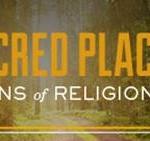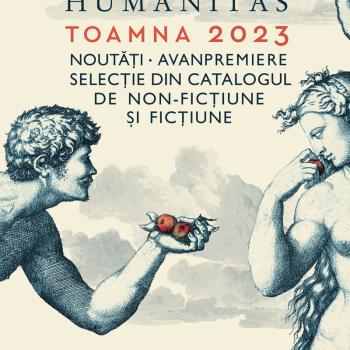The day before yesterday was the first day of classes at Butler University. My son and I both rode our bicycles to campus. Not realizing that it had rained the night before, I didn’t recognize the need to warn against taking the route that runs along the canal between a major road we take and the university campus. We both reached campus spattered with mud as a result.
I seriously considered going to the first meeting of my class on the historical Jesus (later that afternoon) as I was, a living illustration of a useful point to make, namely that unlike the clean cinematic Jesus students may have seen, the historical Jesus would have been a dust-covered individual who would look as out of place in our society as a mud-splattered professor does in a university classroom.
In the end, I thought better of it and cycled back home to change and hopefully make a better first impression on the first day of class than I almost did.
I did tell them this story, though. I also added that the Jesus of history would have been covered in dust unless the halo he is traditionally depicted as having was dust-repellant. I’m not sure that quip was a good addition to the story.
I think the class got off to a good start. What’s your most interesting anecdote about turning into a living illustration of some point that you probably would have made anyway, but didn’t foresee illustrating with your own person?
I should perhaps end this post by talking about the end of the day. In the end, my son ended up coming home later than he expected, as it was close to being dark – and he got a flat tire on his bike. For modern people, the amount of distance covered between home and work or school is made smaller by cars, and even bicycles. It is hard to imagine ourselves into a world in which at best owning a horse or donkey could speed up travel times for those who could afford them, and not by all that much. It is likewise hard to imagine ourselves into a world in which one had even less control than we do now over whether we have to continue a journey into the night, less ability to track the passing of time, and few options for seeing our way if nightfall creeps up on us and catches us by surprise (something ancients couldn’t afford to let happen and so paid attention to in ways different from our experience). And it is hard to imagine ourselves into a world in which damage to that animal’s hoof or our own shoe while traveling could be a matter of life and death rather than a minor inconvenience.
There are so many points of everyday life, never mind of culture, theology, and worldview, at which the perspective of ancient authors (such as but not limited to those who wrote the works contained in the Bible) was different from our own, different enough to matter to our comprehension of what they wrote.
Of course, for many people today in many parts of the world, their experience is of a world more like that ancient one, and less like modern urban life in North America…
















